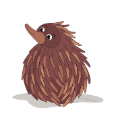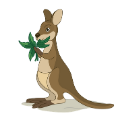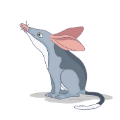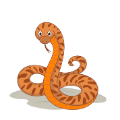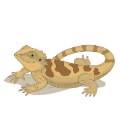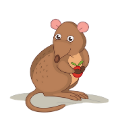Information for Teachers
Albert Einstein once said, “If the bee disappeared off the surface of the globe, then man would have only four years of life left. No more bees, no more pollination, no more plants, no more animals, no more man.”
While it may sound surprising, the greatest threat to any animal on the planet is mankind. Humans are perched solidly at the top of the food chain, and our younger generations must understand now more than ever - the incredible responsibility that comes with that power.
The Need
Cruelty and neglect occur in both rural and urban areas, at the hands of all genders, all ages, all cultures, ethnicities and socio-economic classes. Cruelty and neglect take many forms and no animal species is immune to it.
RSPCA's mission has always been to encourage the humane treatment of all animals and to prevent cruelty being inflicted upon them. However, every year RSPCA continues to care for thousands of lost, abandoned, injured or abused animals. Our Inspectors and rescue officers attend hundreds of animal emergencies and investigate thousands of animal welfare related complaints. The figures clearly highlight the need in our communities for education and experiences to break cycles of cruelty.
Given the correlation between human violence and animal cruelty, RSPCA recognises that changing the hearts and minds of our communities will not only improve the world for animals but for humans as well.
For prevention to occur on a national scale, the need to reach and change the hearts and minds of an entire generation of Australians is essential. And so in an attempt to do so, RSPCA South Australia's new education strategy was born.
Education Strategy Background
RSPCA’s new education strategy is based on evidence from international research in the field of Animal Welfare Education. This research highlights that the most effective time to provide this type of programme is between 7 and 12 years of age, therefore our initial strategy is designed for primary and middle schools. With this evidence in mind, young people also have the potential to disseminate new habits effectively among the rest of the population.
The programme has been uniquely designed by Australian classroom teachers to integrate into the Australian Curriculum subjects schools teach; making animal welfare a real-life, meaningful context to apply and learn these subjects through, rather than a stand-alone, forgettable one-off session.
The Resource
Though they can be fun, we know that one-size-fits-all approaches that are not targeted to the learning needs of specific students, one-off lessons, worksheets or ‘busy work’ (isolated colouring in activities, crosswords and word-finds) do not contribute to learners’ deeper knowledge development, understandings, long-term attitudes and changes of behaviour.
RSPCA’s exciting new animal welfare education resource acknowledges all these challenges. Our Teachers’ Portal resources have been uniquely designed to integrate into the Australian Curriculum subjects that schools already teach. This makes animal welfare a real-life, meaningful context to apply and learn these subjects through. This also prevents our resource from being yet “another thing” for busy teachers to fit into the school day.
We are aware that our audience is very diverse. We understand that students and their teachers know better than we do of their individual prior knowledge, levels, and learning needs. Therefore, each of our unit plans is designed to be cut, pasted and adapted to suit the needs of individual learners. Teachers can choose from a selection of Australian Curriculum year levels, learning areas and general capability foci, to create learning experiences appropriate for their students’ current learning goals and needs. Those selected can have more emphasis placed on them and therefore be the focus of formative and summative assessment - in combination with the animal welfare achievement objectives.
Designed to support, extend and consolidate learning is our interactive Students’ Portal. We see our Students’ Portal as a learning community hub for students to visit from home and school. Learners are able to research information to inform their learning of topics being explored in the classroom through reading, watching videos, asking experts, testing their knowledge and even sharing their work with other students throughout Australia.
In addition to both the Teachers’ and Student Portals, positive animal interaction experiences will soon be available to schools in areas that animal neglect, abandonment, and abuse is most prevalent and exposure to responsible pet ownership is scarce. Much research has provided evidence that positive child-animal relationships can develop empathy, generosity, compassion, helpfulness, care and responsibility - skills we believe most of us want our children to have, and society wishes of all its citizens.
The Outcome
The traditional African proverb: “It takes a village to raise a child” has been widely quoted when examining the partnerships required during the development of our children. When it comes to ending animal cruelty - our “village” has never been more necessary than it is today. It is our hope, that by working together with schools and families, we can raise a generation of children who have learned empathy and compassion, a generation who encourage the humane treatment of all animals, giving them the love and respect they deserve and preventing cruelty being inflicted upon them. And given the correlation between human violence and animal cruelty, we are confident that developing the hearts and minds of our future generations in this way, will not only improve the world for animals but for humans as well.






















